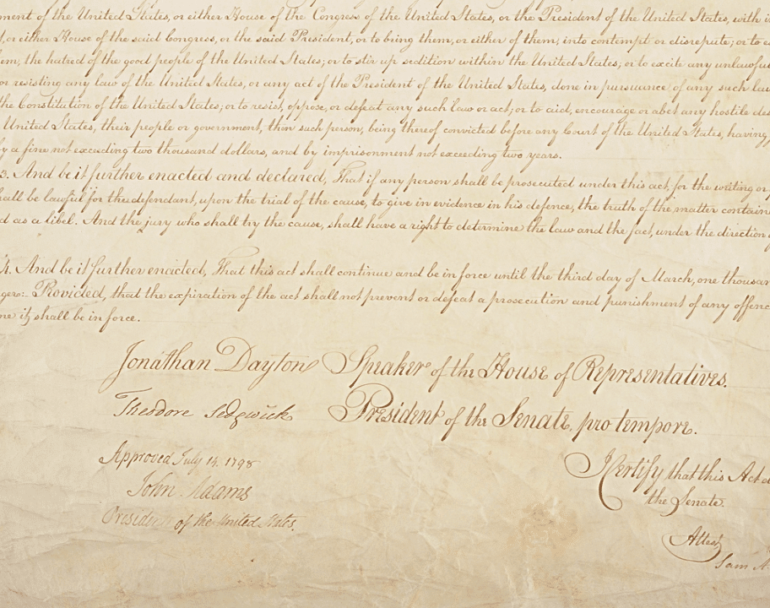
Today in History: John Adams Signs the Sedition Act
By: Dave Benner
Today in 1798, Jeffersonian Republicans celebrated Bastille Day as a partisan holiday. On the same day, President John Adams took this opportunity to sign the Sedition Act into law on July 14, 1798.
The law criminalized bringing the president and members of Congress into ill-repute. Any common criticism that was levied was unlawful, and the Federalists prosecuted and sentenced many individuals with up to a two year jail term and a payment of $2,000. This law negated the possibility of normal political discourse and prevented a republican election from ever taking place. It was a stealthy infringement of the Tenth and First Amendments.
This situation was the impetus for then-Vice President Thomas Jefferson to write the Kentucky Resolutions of 1798, which declared that “whensoever the general government assumes undelegated power, its acts are unauthoritative, void, and of no force.” In a follow-up resolution, Jefferson continued, “a nullification, by those sovereignties, of all unauthorized acts done under colour of that instrument, is the rightful remedy.”
James Madison followed by secretly drafting a set of resolutions in Virginia, the Virginia Resolutions of 1798, which declared that “palpable, and dangerous exercise of other powers, not granted by the said compact, the states who are parties thereto, have the right, and are in duty bound, to interpose for arresting the progress of the evil, and for maintaining within their respective limits.”
These resolutions embodied the cornerstone of Jeffersonian political theory and emphasized that the Constitution was a compact between a leagues of states. Thereby, the term “Principles of ‘98” became shorthand for state-level nullification and interposition, a doctrine invoked repeatedly over the next several decades by various states throughout the union to resist palpable violations of the Constitution.